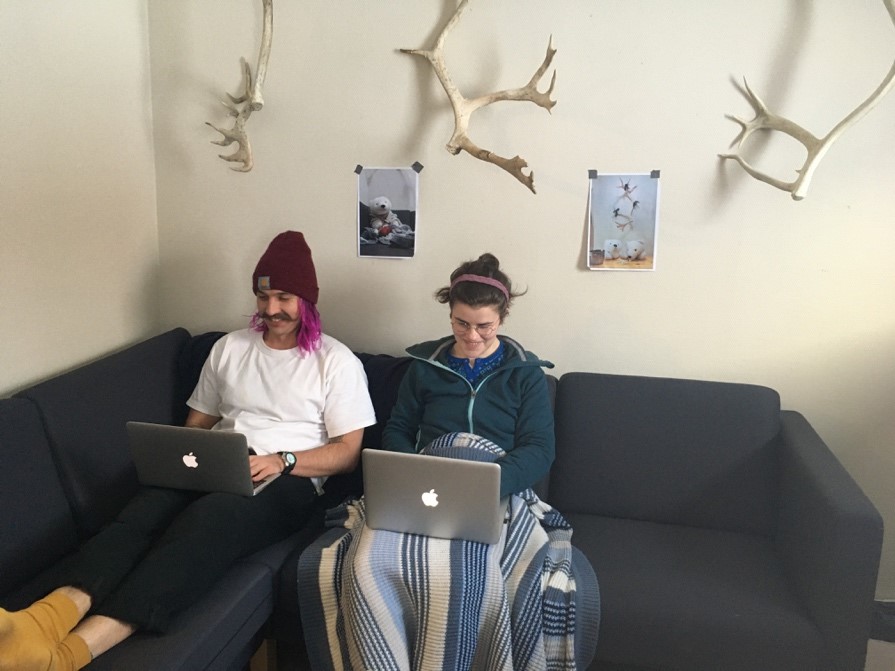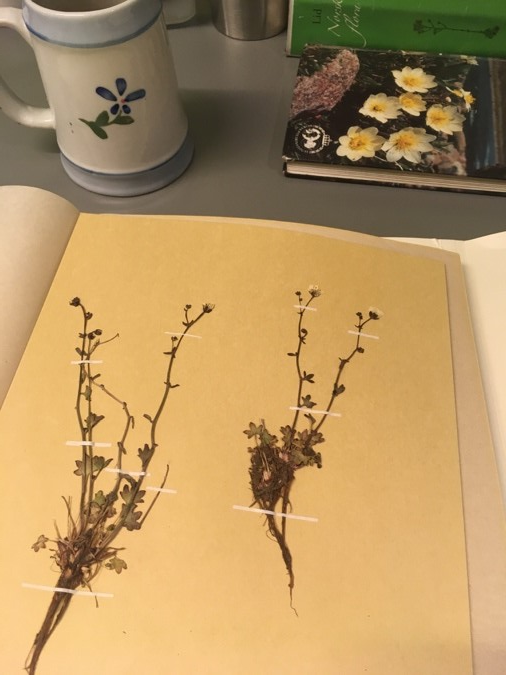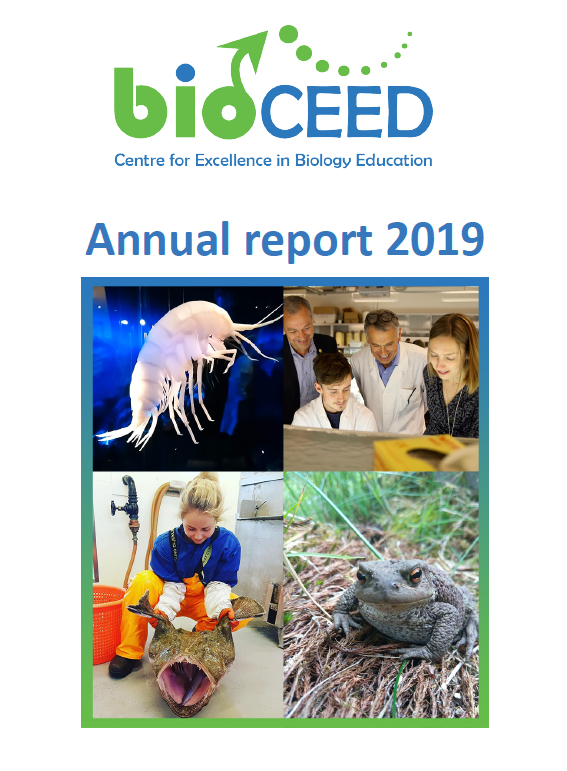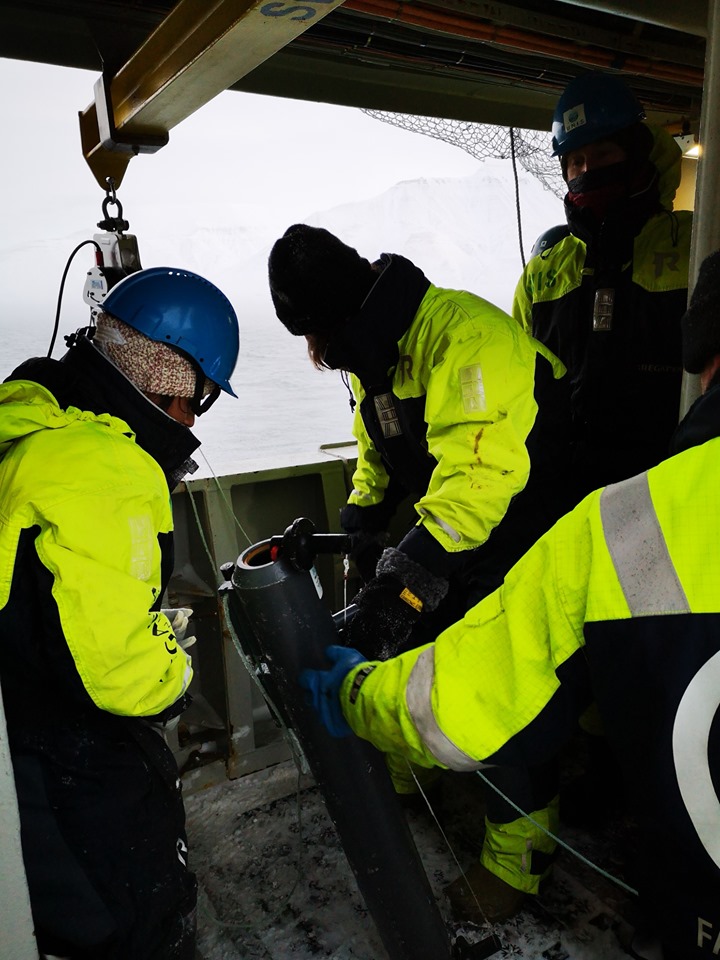Doing internship at bioCEED
 We are two students doing an internship at bioCEED, based at UNIS, during this spring semester. Anne Bruls first came to UNIS as a BSc student in 2016. She is enrolled in a general MSc Biology program in Wageningen, the Netherlands, but her addiction to Arctic Biology led her to first do her MSc thesis at UNIS, and now her internship as well. Dominic Oberle is currently on exchange at UNIS for the last semester of his undergrad degree. At home (Brisbane, Australia) he studies marine science at the University of Queensland, however here in Svalbard his studies are more focused towards environmental management with an internship with bioCEED. We are both very happy to experience Svalbard and all its beauty!
We are two students doing an internship at bioCEED, based at UNIS, during this spring semester. Anne Bruls first came to UNIS as a BSc student in 2016. She is enrolled in a general MSc Biology program in Wageningen, the Netherlands, but her addiction to Arctic Biology led her to first do her MSc thesis at UNIS, and now her internship as well. Dominic Oberle is currently on exchange at UNIS for the last semester of his undergrad degree. At home (Brisbane, Australia) he studies marine science at the University of Queensland, however here in Svalbard his studies are more focused towards environmental management with an internship with bioCEED. We are both very happy to experience Svalbard and all its beauty!
Anne’s main project is to work on ArtsApp, a digital taxonomic key. A key for all vascular plants in Svalbard is being developed and her job is to test the first version and improve it, aiming for the key to be fully functional for the summer and autumn courses. She is also a bioCEED student representative. As it’s the last semester before her planned graduation, it is a very nice opportunity to do her internship at bioCEED and experience other future career opportunities besides the content- and research related side of biology.
 Both Dom and Anne are working on the online learning platform Learning Arctic Biology (www.learningarcticbiology.info). This is a website on terrestrial arctic biology, focusing on the Svalbard region. Hopefully it will be fully operational to use as a teaching tool for the autumn terrestrial arctic biology course at UNIS (AB-201), as currently no textbook exists in this field. The website was born out of a book that was being developed but didn’t come into fruition. Progress had stalled on the website; however, we hope we can bring some new life into the project and see it through to completion.
Both Dom and Anne are working on the online learning platform Learning Arctic Biology (www.learningarcticbiology.info). This is a website on terrestrial arctic biology, focusing on the Svalbard region. Hopefully it will be fully operational to use as a teaching tool for the autumn terrestrial arctic biology course at UNIS (AB-201), as currently no textbook exists in this field. The website was born out of a book that was being developed but didn’t come into fruition. Progress had stalled on the website; however, we hope we can bring some new life into the project and see it through to completion.
Another project which bioCEED is involved in is FieldPass. It is a cross-departemental project aiming to “develop, test and evaluate tools and assessment forms that promote course alignment in field teaching.” During our internship, we hope to contribute to FieldPass, for example through helping to develop a virtual field guide for Bjørndalen. It is an exciting time to be involved with bioCEED as FieldPass aims to incorporate virtual reality into the project as a new tool for education. We are looking forward to seeing what the future has in store for bioCEED!
For now, however, it is unsure what the next weeks or even months will bring. Luckily most of our work is online, so our internships will continue for the foreseeable future. We are adjusting to working from home, which although not ideal certainly has its benefits as well.
Anne Bruls and Dominic Orbele



